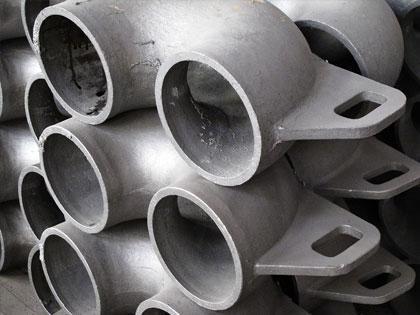Heat resistant steel castings refer to steels that work at high temperatures. The development of heat-resistant steel castings is closely related to the technological progress of various industrial departments such as power stations, boilers, gas turbines, internal combustion engines, aviation engines, etc. Due to the different temperatures, stresses and environments used by various machines and devices, the types of steel used are also different.
According to the characteristics of steel classification:
1) oxidation resistant steel (or heat-resistant stainless steel): this kind of steel has good oxidation resistance and high temperature corrosion resistance at high temperature (550 ~ 1200℃), and has certain high temperature strength. It is used to manufacture all kinds of heating furnace parts and heat exchangers, as well as the combustion market of thermal steam turbines, boiler hangers, furnace bottom plates, roller ways and furnace tubes, etc. Anti-oxidation performance is the main index, and the components themselves do not bear much pressure.
2) Hot strong steel: it can bear considerable additional stress at high temperature (usually 450 ~ 900℃), has excellent oxidation resistance and high temperature gas corrosion resistance, and usually also needs to bear periodic variable stress. They are usually used as rotors and blades of steam turbines and gas turbines, superheaters of boilers, bolts and springs working at high temperatures, intake and exhaust valves of internal combustion engines, oil hydrogenation reactors, etc.
Continuous casting of heat-resistant steel can not only improve the yield of molten steel, save the reduction process, greatly reduce energy consumption and significantly improve production efficiency. Continuous casting has uniform structure, small segregation and low labor intensity in continuous casting production. Therefore, continuous casting is an important measure to improve the quality and reduce the cost of heat resistant steel production, and is also one of the important symbols of modern production.
For more information, please contact us: alloy steel castings.



